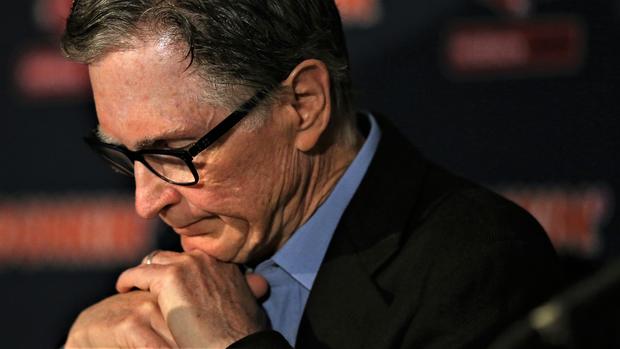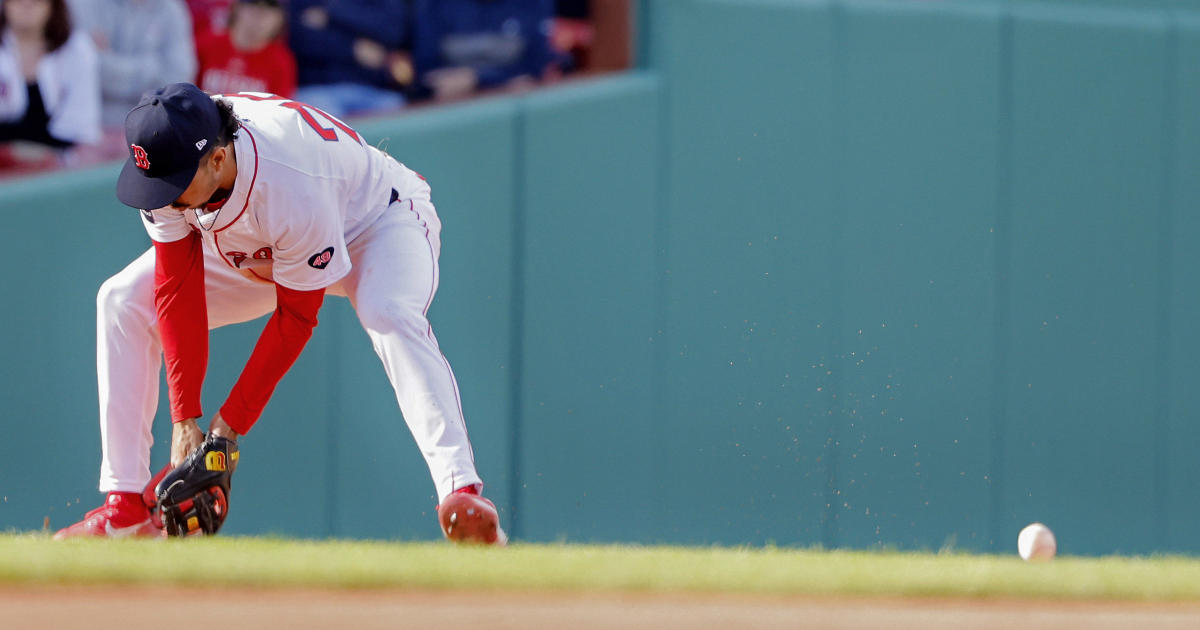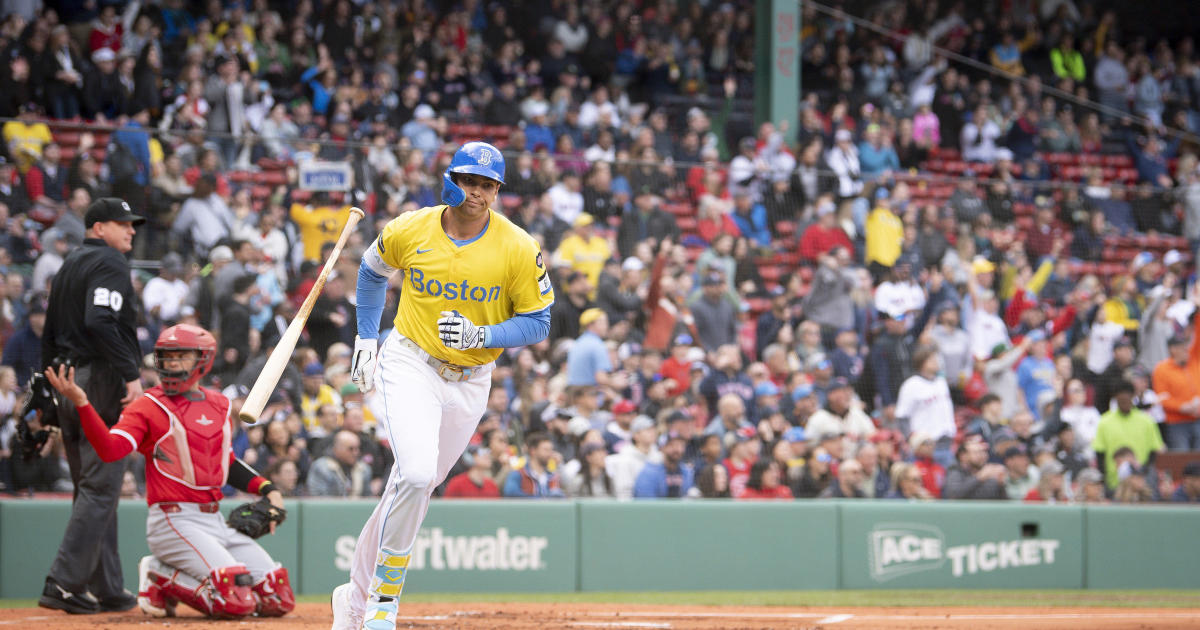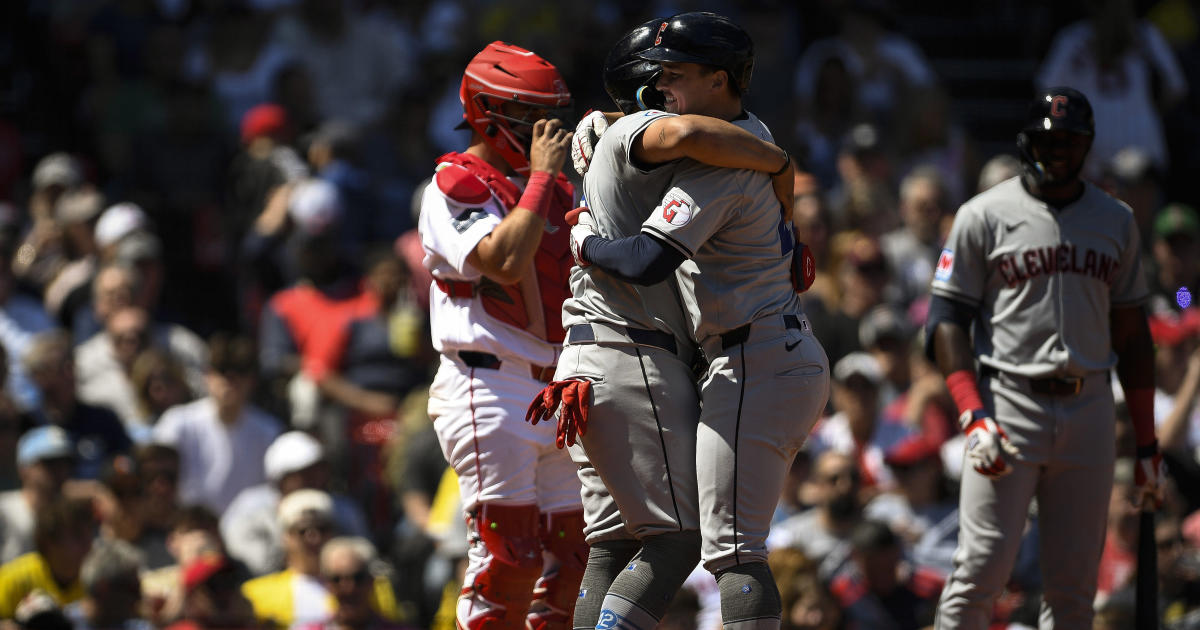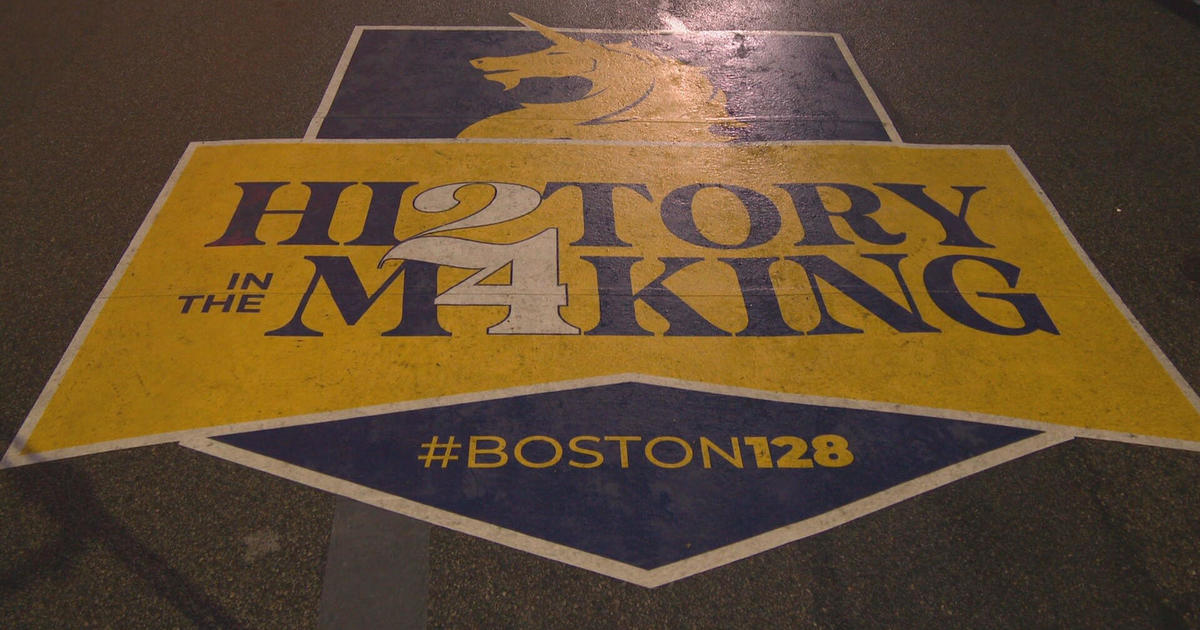John Henry On Mookie Betts Trade, David Price Salary Dump: 'Nothing To Do With' Getting Under Luxury Tax
By Michael Hurley, CBS Boston
BOSTON (CBS) -- The Boston Red Sox traded away Mookie Betts (and his $27 million salary) and David Price (and $48 million of the remaining $96 million owed to him) this month. In doing so, the team lowered its payroll to get under the Competitive Balance Tax, thus giving the team avenues of flexibility in the coming years.
On its face, it is a concept that most fans and observers can understand. Ideally, a team would have handled its finances better, so as to not be in a position to sell off a home-grown superstar like Mookie Betts. But given the position the team was in, the need to get under the CBT -- aka the luxury tax -- was clear.
Nevertheless, team owner John Henry is for some reason fighting back against the notion that the trade with the Dodgers was executed in order for the Red Sox to get under the CBT.
"You're hung up on CBT," Henry told The Boston Globe's Michael Silverman over the weekend. "You see this and I think the media, too, to some extent, ever since we mentioned that clubs have a tendency to get below CBT once in a while. It's surprising that anyone would think we would outspend every other team in baseball every single year. To me, that's a little surprising. Clubs have to make difficult decisions, and one of the biggest decisions they have to make is, 'Do we potentially let a great player walk away for very little compensation?' That's one of the decisions that you have to make irrespective of CBT -- it has nothing to do with CBT."
That quote sure is a whopper.
For starters, Henry didn't "mention that clubs have a tendency to get below CBT once in a while." Henry actually stated specifically that the Red Sox needed to get under the CBT.
Here's exactly what Henry said in September: "This year we need to be under the CBT, and that was something we've known for more than a year now. If you don't reset, there are penalties, so we've known for some time now we needed to reset as other clubs have done."
We can run that one back once more, with some bold typeface where Henry "mentioned that clubs have a tendency to get below CBT once in a while":
"This year we need to be under the CBT, and that was something we've known for more than a year now. If you don't reset, there are penalties, so we've known for some time now we needed to reset as other clubs have done."
The comments to Silverman mark the second time this offseason that Henry has bristled at the notion that the team was looking to get under the CBT -- a notion that came via Henry directly in September. But in January, in comments to Dan Shaughnessy, Henry said, "This focus on CBT resides with the media far more than it does within the Sox."
The Red Sox' roster decisions since those comments -- namely, trading away a generational talent while also dumping significant salary of Price -- would show that the focus on CBT resides within the Red Sox plenty.
The rest of Henry's commentary strayed into straw man territory, too. Certainly, people aren't expecting the Red Sox to "outspend every other team in baseball every single year," as those who understand the implications of the CBT can see how being over the mark this season would have made operations more difficult in the coming years.
But most people might have preferred, say, not committing $217 million to David Price (after the team could have had the more reliable, home-grown Jon Lester for much less). Some might have preferred the team to hold off on inking Chris Sale to a five-year, $145 million extension, at least waiting to see if the injury concerns were real. (Sale made just 25 starts in 2019 after signing the new deal, going 6-11 with a 4.40 ERA. Suffice it to say, had he entered free agency this winter, he would not have landed a $145 million deal.) Many astute baseball observers would have preferred to have seen the team pass on the "opportunity" to sign Nathan Eovaldi to a four-year, $68 million contract after the 2018 World Series. Yes, Eovaldi's impact was immense in that postseason, but his career 4.16 ERA better reflected the type of inconsistent pitcher the Red Sox were signing. (Eovaldi only managed to pitch 67.2 innings, posting a 5.99 ERA in 2019.) Those same baseball observers certainly took note last week when, rather than finding a middle ground, the Red Sox opted to go to arbitration with Eduardo Rodriguez over $675,000. Rodriguez was the team's best starting pitcher last year, and he's posted a 3.81 ERA over the past two seasons, all while earning under $7 million total. Going through the arbitration process when the two sides were within $700,000 of each other seemed like a notably odd decision for a team as rich as the Red Sox to make. (Though only a minor deal in the grand scheme of things, the decision to give journeyman Steve Pearce a $6.25 million deal for 2019 killed the Red Sox' ability to make much-needed signings in the bullpen.)
A multitude of questionable decisions regarding the expenditure of hundreds of millions of dollars put the Red Sox in a position where they needed to shed some excess salary in order to get under the CBT. We know this because John Henry said so himself in September. Now in February and dealing with some critical backlash against a deal that wasn't particularly great from Boston's perspective, he's trying to blame us for driving that narrative.
Unfortunately in this tale, actions speak louder than words. And with Mookie Betts getting to work for the Dodgers, and with the Red Sox paying $16 million annually for Price to pitch in L.A. for the next three years, those actions show a team that needed to get under the CBT. Just like the owner said back in September.
You can email Michael Hurley or find him on Twitter @michaelFhurley.
